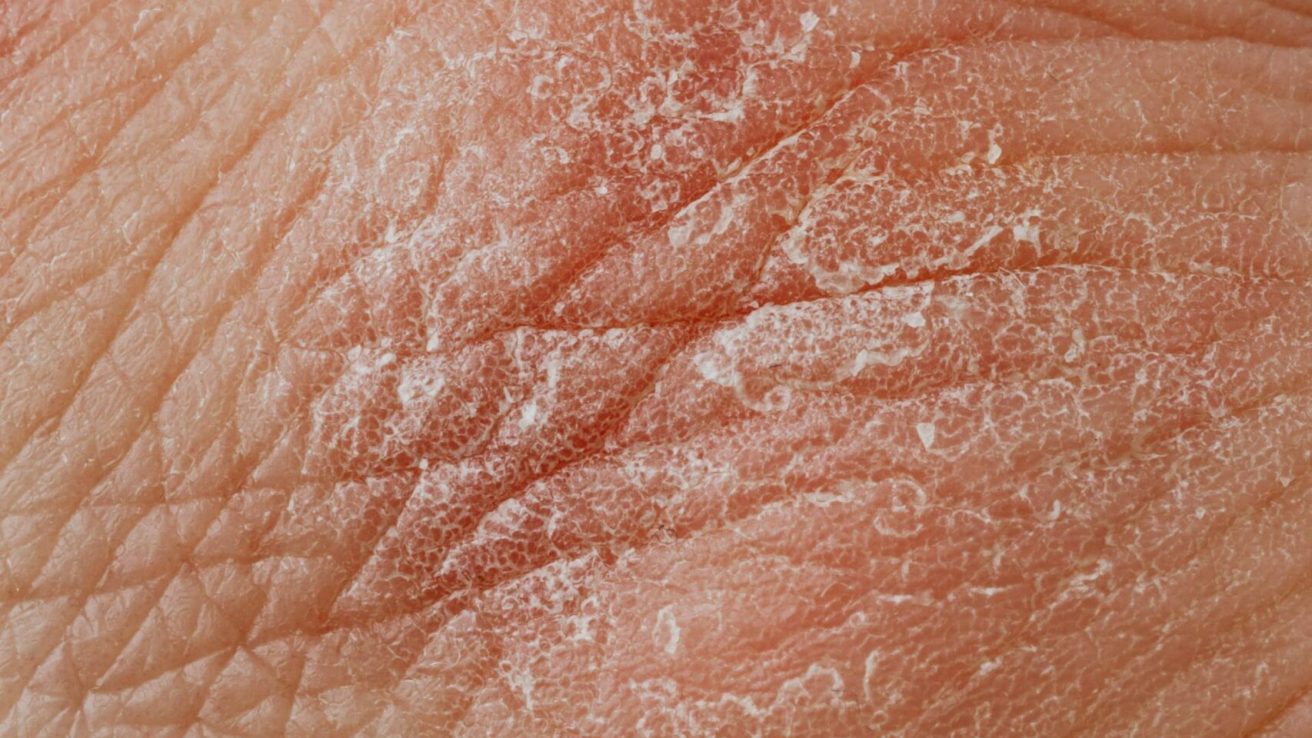CT-P43 demonstrated efficacy and safety comparable to originator ustekinumab in treating moderate-to-severe plaque psoriasis in a phase III trial.
Plaque psoriasis is a chronic inflammatory disease with an estimated prevalence of ≥1.5% in Australasia, Western and Central Europe, and North America. Ustekinumab is a monoclonal antibody approved for treating moderate-to-severe plaque psoriasis.
A randomized, active-controlled, double-blind, phase III trial published in BioDrugs compared the efficacy and safety of a candidate ustekinumab biosimilar, CT-P43, to originator ustekinumab in adults with moderate-to-severe plaque psoriasis.
Study Population
In Treatment Period I of the trial, 509 patients were randomized (CT-P43: 256, originator ustekinumab: 253). In Treatment Period II, 502 patients were re-randomized (253 continued CT-P43, 125 continued originator ustekinumab, and 124 switched to CT-P43). Demographic characteristics were similar between the groups.
CT-P43 Demonstrates Equivalent Efficacy to Originator Ustekinumab
The primary efficacy endpoint was the mean percent improvement from baseline in the Psoriasis Area and Severity Index (PASI) score at week 12. Both Food and Drug Administration (FDA) and European Medicines Agency (EMA) analyses demonstrated equivalence between CT-P43 and originator ustekinumab for the primary efficacy endpoint.
Confidence intervals for treatment differences were within the pre-defined equivalence margins. The per-protocol set results and the ‘best-worst case’ and ‘worst-best case’ sensitivity analyses supported the primary analyses.
Absolute values and mean per cent improvement from baseline in PASI scores and the proportion of patients reaching PASI 50/75/90/100 were similar between the groups at all time points up to week 28.
The proportion of patients with a static Physician’s Global Assessment score of 0 or 1 was similar between the groups. Furthermore, the Dermatology Life Quality Index score reduction from baseline was similar across treatment groups at weeks 12 and 28.
Comparable Pharmacokinetics and Safety Profiles Observed Between CT-P43 and Originator Ustekinumab
Serum ustekinumab concentrations were similar between the groups and by dose at all time points through week 28. In Treatment Period I, 37.1% vs. 29.6% of patients experienced at least one treatment-emergent adverse event (TEAE) in the CT-P43 versus originator ustekinumab group, respectively. Study drug-related TEAEs occurred in 7.0% vs. 5.9% of patients in the CT-P43 versus the originator ustekinumab group, respectively. Serious TEAEs occurred in 1.6% of patients in each group. No TEAEs led to study drug discontinuation in Treatment Period I.
In Treatment Period II, 15.8%, 22.4%, and 21.0% of patients experienced at least one TEAE in the continued CT-P43, continued originator ustekinumab, and switched-to-CT-P43 groups, respectively. Correspondingly, 1.6%, 4%, and 4.8%, respectively, experienced TEAEs related to the study drug. There were no serious TEAEs or TEAEs resulting in death. TEAEs led to drug discontinuation in two patients in the continued CT-P43 group and one in the continued originator ustekinumab group. There was no discontinuation in the switched-to-CT-P43 group.
Most TEAEs were grades 1–2. There were no hypersensitivity reactions or malignancies. Infections occurred with similar frequencies across the groups.
Immunogenicity Profiles Were Comparable Between CT-P43 and Originator Ustekinumab
In Treatment Period I, the proportion of patients with positive anti-drug antibody (ADA) status was lower in the CT-P43 versus originator ustekinumab group, with similar trends in Treatment Period II. No change was observed in ADA frequency after switching to CT-P43. The effect of immunogenicity on clinical outcomes was similar between CT-P43 and originator ustekinumab during Treatment Period I, with no clinically significant impact of ADA status on efficacy or safety.
Source:
Papp, K., Lebwohl, M., Thaçi, D., Jaworski, J., Kwiek, B., Trefler, J., Dudek, A., Szepietowski, J. C., Reznichenko, N., Narbutt, J., Baran, W., Kolinek, J., Daniluk, S., Bartnicka-Maslowska, K., Reich, A., Andrashko, Y., Kim, S., Bae, Y., Jeon, D., . . . Ko, W. (2023). Efficacy and safety of candidate biosimilar CT-P43 versus originator ustekinumab in moderate to severe plaque psoriasis: 28-Week results of a randomised, Active-Controlled, Double-Blind, Phase III study. BioDrugs, 38(1), 121–131. https://doi.org/10.1007/s40259-023-00630-5









